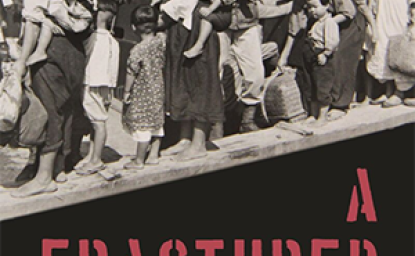China and the Post-War Reconstruction of North Korea, 1953-1961



NKIDP Working Paper #4, “China and the Post-War Reconstruction of North Korea, 1953-1961,” written by Zhihua Shen (East China Normal University) and Yafeng Xia (Long Island University), is the first paper in English to systematically assess the extent and significance of Chinese assistance to North Korea after the Korean War. In addition to examining North Korea’s development following the Korean War armistice, Professors Shen and Xia rely on their expertise of Sino-Soviet relations to draw larger conclusions about North Korea in the Cold War and how the DPRK navigated both the honeymoon period and subsequent schism between China and the Soviet Union.
Relying on ample documentation from the Chinese Foreign Ministry Archive, provincial Chinese archives, and the archives of the former Soviet Union, Shen and Xia argue that:
- Chinese aid to North Korea was equal to, or even surpassed, Soviet assistance to the Democratic People’s Republic of Korea in the 1950s and 1960s;
- North Korea’s successful post-war reconstruction—and ability to outpace South Korea’s economic development until the early 1970s—was in large measure due to the “fraternal support,” or foreign aid, offered by China and other socialist countries;
- North Korea capitalized upon both the initial Sino-Soviet honeymoon and the emerging Sino-Soviet split to extract economic concessions from China and the Soviet Union;
- While Sino-North Korean relations were not always “as close as lips to teeth,” and were in fact volatile during various periods of time, the trade and economic relationship between China and North Korea remained relatively stable in the period under study.
Thirteen translated documents from Chinese archives are appended to NKIDP Working Paper #4, allowing scholars and students to gain a deeper understanding of the mechanics of Chinese-North Korean relations in the 1950s and 1960s.
To download "China and the Post-War Reconstruction of North Korea, 1953-1961," or to view the documents included in the article, please see the links below.
***
DOCUMENT LIST
(click document title to be redirected to the Wilson Center Digital Archive)
DOCUMENT NO. 2
Agreement on Korean Technical Personnel Receiving Training in China and Chinese Technical Personnel Working in Korea
Made by the Governments of the People’s Republic of China and the Democratic People’s Republic of Korea, 23 November 1953
DOCUMENT NO. 3
CCP Central Committee Propaganda Instructions for the Signing of the Sino-Korean Economic and Cultural Cooperation Agreement, 10 December 1953
DOCUMENT NO. 4
Additional Notification from the Organizational Bureau of the Central Committee on the Issue of Political Examinations for Persons Receiving Training Abroad and Technical Personnel Aiding Korea, 21 April 1954
DOCUMENT NO. 5
Li Fuchun’s Report on Sino-Korean Trade Negotiations, 30 September 1957
DOCUMENT NO. 6
Li Fuchun’s Report on Sino-Korean Trade Negotiations, 4 October 1957
DOCUMENT NO. 10
Minutes of Conversation between Zhou Enlai and Kim Il Sung, 22 November 1958
DOCUMENT NO. 11
Summary Report on Organizing Ethnic Koreans and Mobilizing Korean Immigrants to go to Korea to Take Part in
Construction, 10 December 1959
DOCUMENT NO. 12
Minutes of Conversation between Zhou Enlai and Kim Il Sung, 11 July 1961
Authors

Director, Center for Cold War International History Studies, East China Normal University (ECNU), Shanghai, China

Professor of History, Long Island University

North Korea International Documentation Project
The North Korea International Documentation Project serves as an informational clearinghouse on North Korea for the scholarly and policymaking communities, disseminating documents on the DPRK from its former communist allies that provide valuable insight into the actions and nature of the North Korean state. Read more


Cold War International History Project
The Cold War International History Project supports the full and prompt release of historical materials by governments on all sides of the Cold War. Read more


History and Public Policy Program
A leader in making key foreign policy records accessible and fostering informed scholarship, analysis, and discussion on international affairs, past and present. Read more






